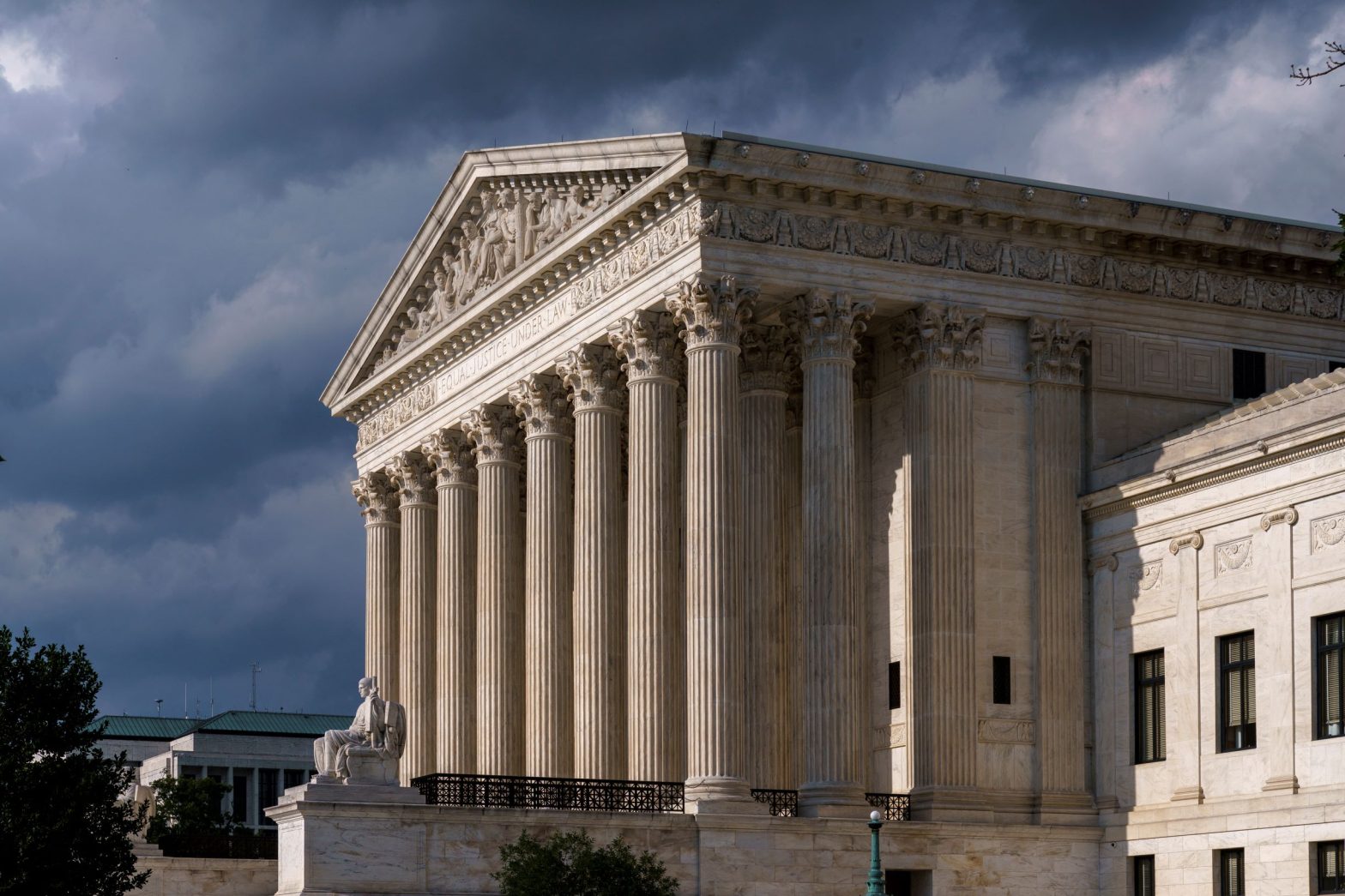Justices Defer Harvard Case on Race in College Admissions

WASHINGTON (AP) — With abortion and guns already on the agenda, the conservative-dominated Supreme Court is considering adding a third blockbuster issue — whether to ban consideration of race in college admissions.
The justices on Monday put off a decision about whether they will hear an appeal claiming that Harvard discriminates against Asian American applicants, in a case that could have nationwide repercussions. The court asked the Justice Department to weigh in on the case, a process that typically takes several months.
“It would be a big deal because of the nature of college admissions across the country and because of the stakes of having this issue before the Supreme Court,” said Gregory Garre, who twice defended the University of Texas’ admissions program before the justices.
The presence of three appointees of former President Donald Trump could prompt the court to take up the case, even though it’s been only five years since its last decision in a case about affirmative action in higher education.
In that Texas case, the court reaffirmed in a 4-3 decision that colleges and universities may consider race in admissions decisions. But they must do so in a narrowly tailored way to promote diversity, the court said in a decision that rejected the discrimination claims of a white applicant. Schools also bear the burden of showing why their consideration of race is appropriate.
Two members of that four-justice majority are gone from the court. Justice Ruth Bader Ginsburg died in September. Justice Anthony Kennedy retired in 2018.
The three dissenters in the case, Chief Justice John Roberts and Justices Clarence Thomas and Samuel Alito, remain on the court. Roberts, a moderating influence on some issues, has been a steadfast vote to limit the use of race in public programs, once writing, “It is a sordid business, this divvying us up by race.”
The court’s willingness to jump into major cases over abortion and gun rights also appear to turn on the new, more conservative composition of the court because similar appeals had been turned away in the past.
Like the abortion case, the Harvard case lacks a split among appellate courts that often piques the high court’s interest in a case.
The Supreme Court has weighed in on college admissions several times over more than 40 years. The current dispute harks back to its first big affirmative action case in 1978, when Justice Lewis Powell set out the rationale for taking account of race even as the court barred the use of racial quotas in admissions.
In the Regents of the University of California v. Bakke, Powell approvingly cited Harvard as “an illuminating example” of a college that takes “race into account in achieving the educational diversity valued by the First Amendment.”
Twenty-five years later, Justice Sandra Day O’Connor likewise invoked the Harvard plan in her opinion upholding the University of Michigan’s law school admissions program.
Now it’s Harvard program in the crosshairs of opponents of race-based affirmative action.
The challenge to Harvard is led by Edward Blum and his Students for Fair Admissions. Blum has worked for years to rid college admissions of racial considerations.
The group claims that Harvard imposes a “racial penalty” on Asian American applicants by systematically scoring them lower in some categories than other applicants and awarding “massive preferences” to Black and Hispanic applicants.
Harvard flatly denies that it discriminates against Asian American applicants and says its consideration of race is limited, pointing out that lower courts agreed with the university.
In November, the federal appeals court in Boston ruled that Harvard looked at race in a limited way in line with Supreme Court precedents.
The class that just finished its freshman year is roughly one-quarter Asian American, 15% Black and 13% Hispanic, Harvard says on its website. “If Harvard were to abandon race-conscious admissions, African-American and Hispanic representation would decline by nearly half,” the school told the court in urging it to stay out of the case.
The Trump administration backed Blum’s case against Harvard and also filed its own lawsuit alleging discrimination against Asian Americans and whites at Yale.
The Biden administration already has dropped the Yale suit and almost certainly will take Harvard’s side at the Supreme Court if the case goes forward.
The lead attorney on the appeal is William Consovoy, who also represented Trump in his unsuccessful bid to shield his tax returns from the Manhattan district attorney.
When the court upheld the Michigan’s law school program in Grutter v. Bollinger in 2003, O’Connor took note of the quarter-century that had passed since the Bakke decision.
“We expect that 25 years from now, the use of racial preferences will no longer be necessary to further the interest approved today,” O’Connor wrote.
O’Connor’s timeline set 2028 as a potential endpoint for racial preferences. A more conservative court than the one on which she served could advance that expiration date by several years.























